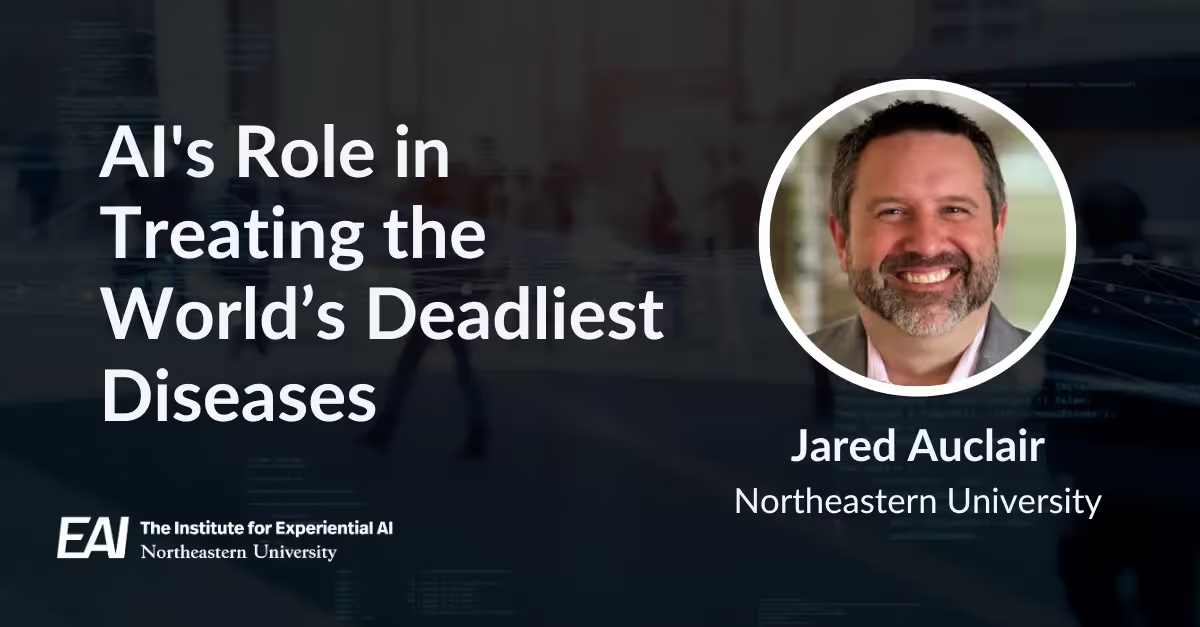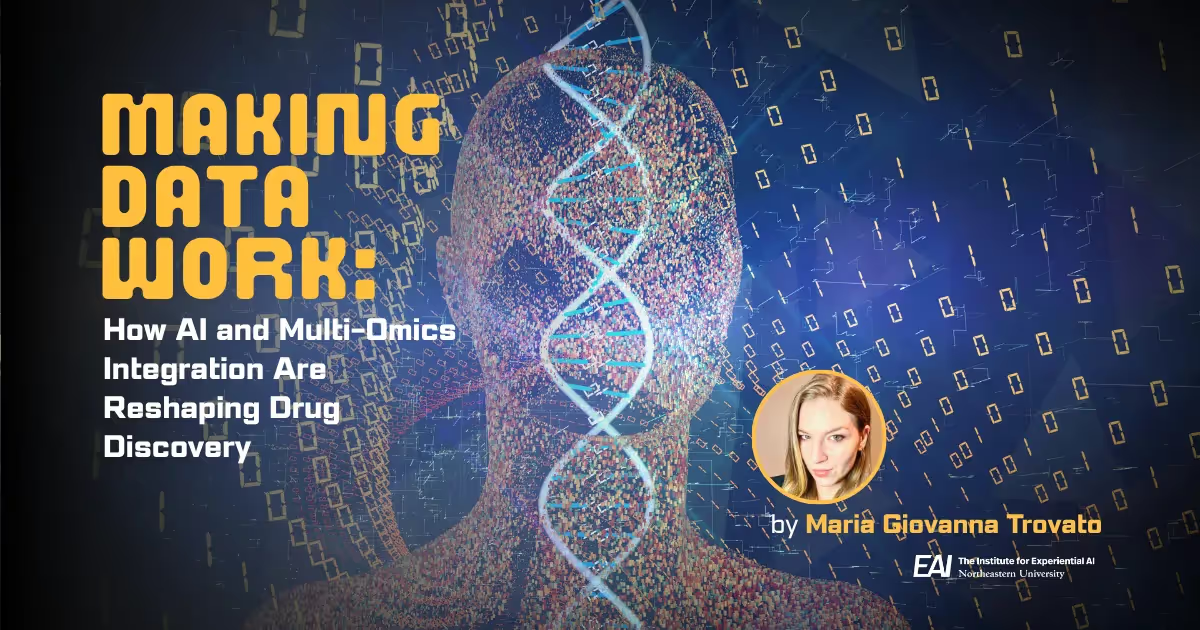Exploring the Role of AI in Treating the World’s Deadliest Diseases with Northeastern’s Jared Auclair

AI is just scratching the surface across drug discovery and life sciences, according to Northeastern University’s Dean of the College of Professional Studies, Jared Auclair.
Auclair’s research explores the quality, safety, and efficacy of biopharmaceutical products, using AI to inform drug development and process engineering. Through his work, Auclair aims to answer two key questions:
- Can AI tools and technologies be designed to inform the way that drugs are manufactured and distributed?
- Can we use large data sets to make what he calls “better mouse traps,” building products driven by large amounts of data as opposed to trial-and-error experiments in the lab?
Using AI to Design Life-Saving Drugs
The goal for Auclair, who is also Northeastern’s director of bioinnovation and served as vice provost of research and economic development, is simple: Positively impact patients.
Auclair is using AI to help analyze large amounts of data that has been collected, but not previously utilized, to inform product development across biotech, drug discovery, life sciences, and more.
“We're seeing AI infiltrate everything that we do,” Auclair said. “The thing that really drove me into this process is the ability to accelerate the work that we're doing. I can develop a drug, and that might take 10 years and $2 billion. If there are ways we can do that faster and cheaper and get those life-saving products to patients more quickly, that's better.”

For decades, researchers have used programs for small molecule-type iterations on drugs. In 2025, Auclair believes there will be an accelerated push to develop new molecules using AI, moving aggressively into large molecule design and implementation for protein-based drugs like antibodies.
Within the next five years, he expects to see a number of new products hitting the market. As these AI-designed drugs emerge, Auclair is looking to bring the technology’s benefits to patients efficiently to help save lives.
“We want to make sure that the people who are the sickest today have access to those medicines and don't miss that opportunity,” Auclair said.
Global Impacts at Northeastern University
As he works to develop new drugs, minimize costs, and reduce time to market, Auclair and other researchers across Northeastern’s global network are forming a new generation of scientists who can utilize AI for what he calls “the new and exciting research of the future.”
“Where the field is driving now aggressively is towards treatments,” Auclair said. “The students that I'm training, I'm hoping, will be involved in finding treatments for some of the most deadly diseases in the world.”
This experiential approach to AI is also a driving force behind our institute’s AI + Life Sciences focus area. Led by Sam Scarpino, the team harnesses use-inspired research, a number-one ranked co-op education program, and a delivery-focused data science team to solve pressing problems alongside industry partners.
Find out how our experts reduce cost curves, improve the probability of success in designing drugs and diagnostics, and find patients who will benefit from established pharmaceuticals.



%20-%20EAI%20Team%20.avif)
%20(30).avif)
